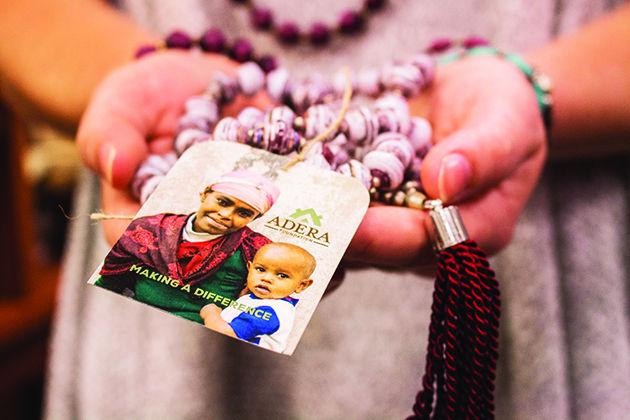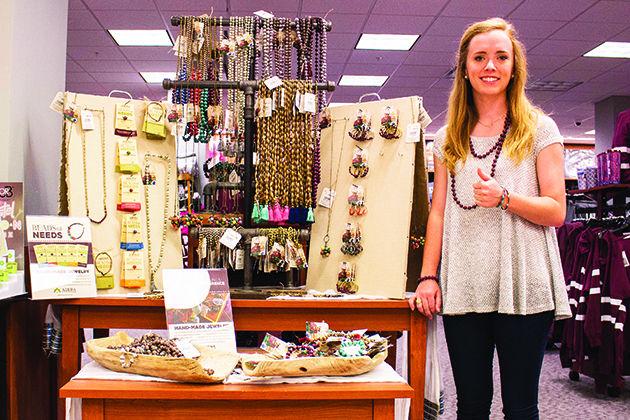Seventeen Ethiopian women now have full-time jobs thanks to a non-profit foundation that stocks campus with their handmade jewelry.
The Adera Foundation established a day care in 2011 for Ethiopian children in Addis Ababa, Ethiopia’s capital. The need to give the children’s mothers a way to provide for their families prompted the foundation to sell its handmade jewelry at two American universities — Texas A&M and Texas Christian University.
Julie Miller, Adera Foundation executive director, said 110 children attended the daycare when the organization began looking into ways to help the mothers.
The mothers work eight hours a day in the day care’s lower level to create beaded jewelry out of recycled paper. The finished products are traded online. A collegiate line of jewelry, called the “Purple Line,” was established in 2014 and sold at TCU. This year, a “Maroon Line” was created to sell at the MSC Barnes & Noble at Texas A&M.
“I interviewed all the moms and asked them what they like about working with Adera and they said, ‘It provides me with a purpose,’ or ‘I’m allowed to provide for my family by myself,’” said Amanda “Mandy” Miller, Julie Miller’s daughter and supply chain management sophomore. “That’s what Adera is really passionate about — allowing them to become self-sustainable rather than just a charity where we give them money; they’re actually working for it for themselves.”
All of the jewelry is made out of recycled paper from old programs and applications at A&M. Mandy Miller said the paper is donated by organizations and churches in College Station.
“Once the date expires, they have to do something with the paper and so we would love to take the paper and turn it into jewelry,” Mandy Miller said.
Before the establishment of the jewelry making business, the women would search the local 10 story-tall landfill for plastic, metal and food to sell or eat. Adera gives these women another way of providing for their families, said Mandy Miller.
“We started with seven women and they started making businesses and starting looking for avenues to sell the jewelry through and that’s how we decided to go with the collegiate line, because university students are very aware and sensitive to fair trade and they want to buy from organizations that are sensitive and not taking advantage of women — especially women — in third world countries,” Julie Miller said.
In the first six weeks after the establishment of the Purple Line, enough jewelry was sold to raise the Ethiopian women’s income by 33 percent and to hire seven more women to the business, Julie Miller said. She said this success prompted Adera to reach out to Texas A&M.
Mandy Miller brought the business idea to Jennifer Walker, general manager of the MSC Barnes & Noble, last spring. Walker said she had not heard of Adera before but decided to accept the offer after learning of the success of the Purple Line.
“They came in to talk to me and it was great, so we signed up to bring in the merchandise,” Walker said. “They have been good.”
Mandy Miller said the designs sold at the MSC Barnes & Noble were developed in collaboration.
All of the campus sales go back to the women who make the jewelry in Ethiopia. In addition to working on the beads, the women take money-management classes.
“The money is not just going into a system where it gets turned into a profit for people on the U.S. side, it’s going back towards the women and it’s being handed to them in cash that they can use to provide for their families,” Mandy Miller said. “If you could see where the women have come from and where they are now — it’s just incredible.”










